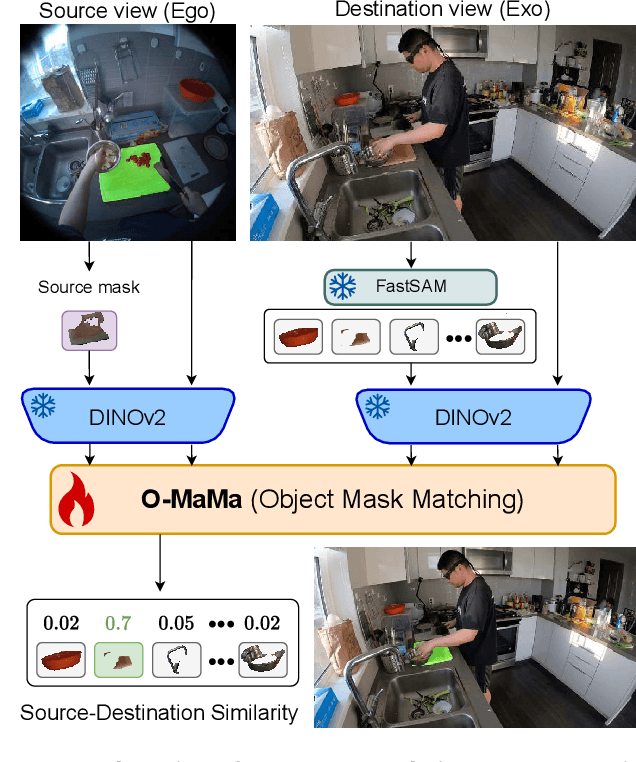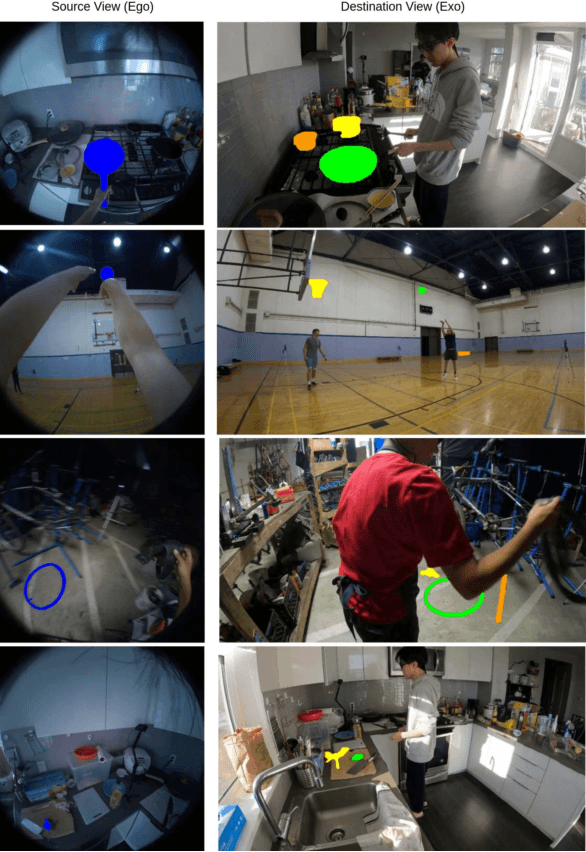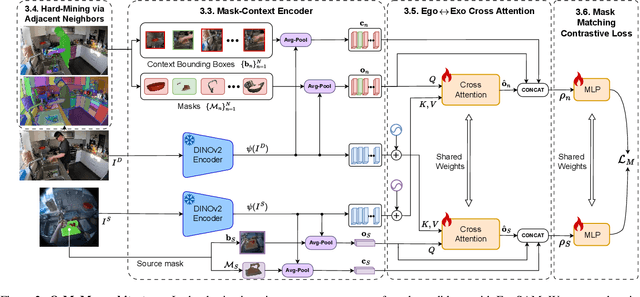Maria Santos-Villafranca
O-MaMa @ EgoExo4D Correspondence Challenge: Learning Object Mask Matching between Egocentric and Exocentric Views
Jun 06, 2025



Abstract:The goal of the correspondence task is to segment specific objects across different views. This technical report re-defines cross-image segmentation by treating it as a mask matching task. Our method consists of: (1) A Mask-Context Encoder that pools dense DINOv2 semantic features to obtain discriminative object-level representations from FastSAM mask candidates, (2) an Ego$\leftrightarrow$Exo Cross-Attention that fuses multi-perspective observations, (3) a Mask Matching contrastive loss that aligns cross-view features in a shared latent space, and (4) a Hard Negative Adjacent Mining strategy to encourage the model to better differentiate between nearby objects.
Knowledge Distillation for Multimodal Egocentric Action Recognition Robust to Missing Modalities
Apr 11, 2025Abstract:Action recognition is an essential task in egocentric vision due to its wide range of applications across many fields. While deep learning methods have been proposed to address this task, most rely on a single modality, typically video. However, including additional modalities may improve the robustness of the approaches to common issues in egocentric videos, such as blurriness and occlusions. Recent efforts in multimodal egocentric action recognition often assume the availability of all modalities, leading to failures or performance drops when any modality is missing. To address this, we introduce an efficient multimodal knowledge distillation approach for egocentric action recognition that is robust to missing modalities (KARMMA) while still benefiting when multiple modalities are available. Our method focuses on resource-efficient development by leveraging pre-trained models as unimodal feature extractors in our teacher model, which distills knowledge into a much smaller and faster student model. Experiments on the Epic-Kitchens and Something-Something datasets demonstrate that our student model effectively handles missing modalities while reducing its accuracy drop in this scenario.
Convolution kernel adaptation to calibrated fisheye
Feb 02, 2024Abstract:Convolution kernels are the basic structural component of convolutional neural networks (CNNs). In the last years there has been a growing interest in fisheye cameras for many applications. However, the radially symmetric projection model of these cameras produces high distortions that affect the performance of CNNs, especially when the field of view is very large. In this work, we tackle this problem by proposing a method that leverages the calibration of cameras to deform the convolution kernel accordingly and adapt to the distortion. That way, the receptive field of the convolution is similar to standard convolutions in perspective images, allowing us to take advantage of pre-trained networks in large perspective datasets. We show how, with just a brief fine-tuning stage in a small dataset, we improve the performance of the network for the calibrated fisheye with respect to standard convolutions in depth estimation and semantic segmentation.
 Add to Chrome
Add to Chrome Add to Firefox
Add to Firefox Add to Edge
Add to Edge